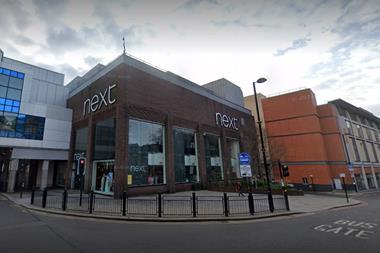Retail is witnessing a transformation unlike any other industry, and the path ahead is uncharted territory. A combination of structural changes, cyclical economic influences and one-off temporary factors have been behind the failure of a series of UK retailers this year – not just the rise of ecommerce. However, despite a difficult backdrop, many retailers are paving the way on how to adapt to these conditions and are proving resilient in this new environment.

In our recent research report, ‘Weathering the perfect storm in UK retail real estate’, we find that UK retailers and their landlords are experiencing a ‘perfect storm’ in which an unusual combination of adverse circumstances has led to a notable range of retailer failures or restructuring. Structural changes in the form of consumers’ spending preferences and the growth of ecommerce have also contributed to retailers’ performance.
Economic factors have further challenged retailers. Increased wages due to a decrease in unemployment and wage growth above inflation, combined with EU workforce shortages, have had wide implications for the retail sector, especially those with a high concentration of stores in London and the South East. In addition, real disposable income growth has been weak over the last decade, and Brexit-related uncertainty, while temporary, has also added extra pressure on consumer prices through imported inflation.
One-off public policy changes have also added substantial cost pressure on retailers. The 2017 Business Rates revaluation (the first for seven years) has added to the burden, especially in London, with retailers experiencing an average increase in their bills of 14% compared with the average decrease of 5%. This has added an increased cost pressure on retailers with a significant proportion of stores in London, but some relief for retailers focused elsewhere, especially retailers mainly operating in the north of England. However, as revaluations move to a three-yearly cycle from 2021, this effect is unlikely to be as pronounced in future as it has been recently.

Last year saw 43 retailer failures. This figure is significantly lower than the 58 collapses seen in 2008 during the height of the global financial crisis – demonstrating that a turn in the economic cycle can have a much more prominent effect on retailers than long-term structural change.
A popular mechanism for weathering the storm in 2018 has been the use of company voluntary arrangements (CVAs) to try and restructure businesses, including rent reductions and store closures. Landlords and investors might see CVAs as an ‘easy’ way to reduce rents for retailers. However, CVAs often provide a better alternative to retailers entering into liquidation or administration. And although the process can help retailers, it does not provide a guarantee of recovery.
CBRE examined a sample of 1,419 stores within recent retailer restructurings and found distinct regional patterns to store portfolio change, with stores in London and the South East typically performing better, despite higher business rates and wage bills on average. At town level, stores in bigger cities are also more likely to be retained than closed, supporting the argument that prime city centre ‘experiential’ retail is preferred by customers.
Our research further finds that landlords and retailers will need to work more closely together to gain a better understanding of customers and agree on lease terms that are flexible and suitable for the current market conditions, but more importantly are agreeable for both landlords and retailers. Retail is increasingly becoming a ‘hands-on’ operational real estate asset class, and the traditional case made for long leases might actually be a disadvantage if it prevents a landlord from maintaining an attractive mix of vibrant, popular tenants.
The evidence is clear: retailers with a good business model, which proactively close and open stores to follow consumer trends, are weathering the perfect storm. To survive in this new environment, retailers need to continuously review their understanding of the modern consumer as well as their respective property portfolios, especially through the use of data insight, to adjust constantly and evolve their proposition and locations. Losing sight of their customer and their property holdings might not matter when the economy is doing well, but the evidence is that doing so in a downturn can be fatal, especially when retailers are slow to adapt to structural change.






























No comments yet